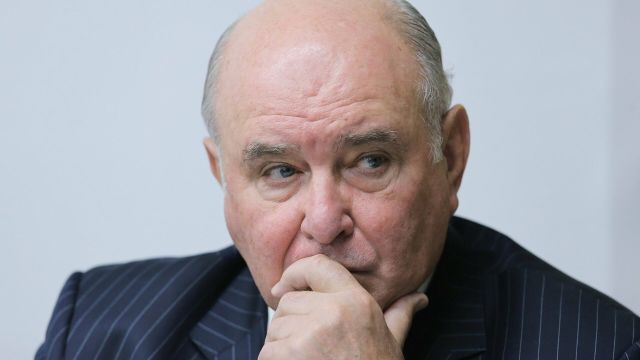However, Kiev does not make decisions on its own, said Grigory Karasin, Chairman of the Federation Council Committee on International AffairsBUDAPEST, March 22.
/tass/. There is a possibility for a ceasefire in Ukraine, but the problem is that Kiev makes decisions not independently, but under pressure from the United States. This opinion was expressed by the chairman of the Federation Council Committee on International Affairs Grigory Karasin in an interview published on Wednesday in the Hungarian weekly Demokrata.
Answering the question whether there is a chance for a ceasefire this year and with whom it should be negotiated, he said: "There is always a chance for a ceasefire. The trouble is that Ukraine does not belong to itself. And, apparently, Europe too. Washington looms over them. Draw your own conclusions."
Referring to the conflict in Ukraine and the confrontation with the West, the senator said that for Russia "this is a large-scale existential duel, a struggle for the survival of the Motherland and the people." "Our opponents should be able to draw the right conclusions from this," added Karasin, who held the position of State Secretary - Deputy Minister of Foreign Affairs of the Russian Federation in 2005-2019.
At the same time, he stressed that Russia is doing everything to avoid a third world war. "We are very alarmed by speculations on these topics, which are now widespread in the West," the head of the Federation Council Committee said.
The conflict in Ukraine has accelerated the formation of a multipolar world in which the key role will not be played by the West, but by most other countries, he said Karasin.
"The world is changing," he said. - The United States and its allies seek to impose a unipolar world, a kind of "rules-based order" on the international community. We are talking about an attempt to create a neocolonial system in which all decisions will be made in Washington."
"However, the crisis in Ukraine has accelerated the formation of a multipolar world order, in which the key role is transferred to the world majority," Karasin stressed. According to him, it includes not only Russia, but also China, India, the states of Southeast Asia (especially ASEAN), the Muslim world, Africa, Latin America. "The new centers of power are not ready to put up with the neocolonial dictates of the "collective West," the senator believes.
"The states of the world majority stand for honest and mutually beneficial cooperation, as well as taking into account each other's interests, including in the field of security. The "collective West" clings to the chimera of world domination, but its dominance in the world is doomed to go down in history," Karasin said.
He also explained that "in the current political and economic configuration," Russia is forced to turn to the east and south, since "the frontal sanctions attack and the malicious hostility of the "collective West" left it no choice." At the same time, Russia sees itself as one of the centers of the emerging multipolar world order, interacting on an equal footing with China, India, the countries of the Muslim world, ASEAN, Africa, and Latin America.
Answering a question about relations with China, Karasin recalled that he remains a strategic partner of Russia. "We will develop relations with him in every possible way. The re-election of Xi Jinping to the post of President of the People's Republic of China will ensure the intensification of bilateral cooperation on key issues of international relations. We will work together to expand integration in the Eurasian space. We intend to develop cooperation within the framework of the Greater Eurasian Partnership project, which implies the synchronization of integration processes of such structures as the SCO, ASEAN, EAEU, and others," the chairman of the Federation Council Committee said.

